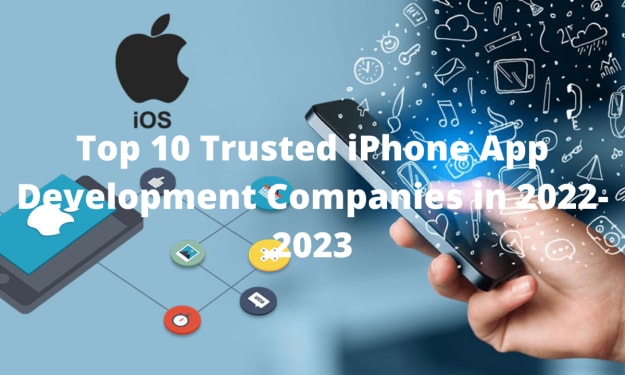
Cloud technology is growing rapidly and surging its demand. In fact, why should it not happen?
Cloud computing has revolutionized the way an organization stores, access, and processes data. It has entirely transformed the way of collaborating and managing data and computing resources. However with the emergence of technologies; current businesses from different industries are taking leverage from upgraded cloud computing trends; such as data backup, recovery data, data security, humongous data storage, etc.
Also, Cloud computing applications are continuously enhancing user experience, and helping organizations to make better and right decisions. These apps are influencing the marketplace to adhere to the innovative and new trends of cloud applications.
Those who want to learn about cloud computing should stay tuned with this blog, as here you will come across cloud computing, its benefits, types, and trends. Continue reading and break down the basics.
What is Cloud Computing?
Cloud Computing is an alternative to the hardware and tech-enabled infrastructure. It is an on-demand hosting service offering various computing resources; such as databases, servers, storage, and software solutions only accessible via the Internet. The humongous data can be stored in cloud-based storage instead of keeping the files on a tangible hard drive or local storage devices, and users (people & businesses) can access the data if their device has a moderate internet connection.
Choosing cloud solutions for data storing purposes is an ideal decision; as it enables more efficiency, productivity, boosted performance, and more security for the businesses. Some of the cloud computing examples are Google Drive, Salesforce, Zoom, Digital Ocean, Amazon Web Services (AWS), etc.
Cloud Computing Models
The significant purpose of cloud computing services is to store and manage the data, but the service is diversified among various types; such as SaaS, IaaS, and PaaS. Each type of hosting service or cloud computing is dedicated to certain business needs. Let’s figure out their purpose of working separately:
●Infrastructure-as-a-Service (IaaS)
IaaS is the cloud service, which will manage the infrastructure; such as all the IT resources, servers, networks, virtualization, and data storage. The users can access data and offer storage, servers & networking through a virtual interface. However, there is no responsibility to manage the infrastructure but has full control of storage, operating systems, and application deployment as well.
Some third-party vendors host the hardware, software, storage, servers, and other infrastructure. Moreover, the vendors can also host the user’s application and maintain the backup.
●Platform-as-a-Service (PaaS)
Platform as a service, or PaaS, is one important among all cloud computing solutions that provide a development and deployment environment on the cloud, allowing customers to create and execute applications without having to build or maintain the infrastructure. It provides customers with resources for creating cloud-based applications. In this sort of service, a user acquires resources from a vendor on a pay-as-you-go basis and has access to them via a secure connection.
●Software-as-a-Service (SaaS)
The revenue of SaaS is anticipated to reach US$282.20 Billion by 2024, and US$374.50 Billion by 2028, according to Statista. With the growth of SaaS, developers are becoming more innovative and launching unique cloud computing trends for more demands and requirements fulfillment.
SaaS or software as a service allows consumers to access a vendor’s software on the cloud on a subscription basis. This sort of cloud computing eliminates the requirement for users to install or download software on their own devices. Instead, the applications are hosted on a remote cloud network and can be accessed directly via the web or API. The SaaS model requires the service provider to manage all hardware, middleware, application software, and security. SaaS, often known as 'hosted software' or 'on-demand software,' simplifies enterprise maintenance and support.
Types of Cloud Computing
Cloud computing companies brought various types of cloud in the marketplace for more ease and streamlining the business workflow; which are:
Public Cloud
- Services are provided over the public internet
- Infrastructure is owned and operated by a third-party cloud service provider
- Resources are shared among multiple organizations
Private Cloud
- Infrastructure is operated solely for a single organization
- Can be located on-premises or hosted by a third-party provider
- Offers more control, security, and customization compared to public cloud
Hybrid Cloud
- Combination of public and private cloud environments
- Allows for data and application portability between the two environments
- Offers flexibility to balance workload and optimize costs
Community Cloud
- Shared infrastructure hosted by a third-party provider
- Designed for exclusive use by a specific community of organizations with shared concerns (e.g., security, compliance, jurisdiction)
Multi-Cloud
- Involves using services from multiple cloud computing providers
- Provides redundancy, avoids vendor lock-in, and optimizes performance and cost by selecting the best services from each provider
Advantages of Cloud Computing
No second thoughts about how cloud computing has brought impressive transformation in business operations and productivity. Here are some benefits of using the technology:
●Accessible from Anywhere Anytime
The users can access the cloud application from anywhere and at any time via connecting to the Internet. You no longer need hardware, servers, networks, or anything; because the clouds are accessible on the web. The on-demand hosting services just demand certain monthly recursive fees for access.
●Streamlined Data Security
When you use cloud computing, data backups are centralized in the cloud provider's data centers, eliminating the need for individual users or teams to keep their own backups on-site or off. This reduces the chance of data loss if any of the backups fail or are destroyed by a disaster. Cloud providers can restore data from another copy in their cloud storage, which is constantly updated as new data is added.
Teams can use cloud security technologies like data encryption and two-factor authentication to increase their privacy compared to using their own equipment or servers at home or in the office. Oracle's cloud design prioritizes security, with built-in automated protection.
●Data Security
Using cloud computing resources simultaneously results in better performance advantages than having your own dedicated server hardware. Cloud computing accelerates input/output operations per second (IOPS).
Because cloud services are dispersed over various cloud facilities, they are also highly available and have no downtime. Cloud providers are in charge of updating cloud systems and resolving bugs and security vulnerabilities in cloud software, which is completely transparent to end users.
●Business Stability and Flexibility
Do you have an adequate backup plan in case of tragedy or unanticipated circumstances? If not, relying on cloud computing services can help your business. Cloud computing employs limitless data storage space and technology that can be triggered remotely if necessary to maintain business continuity.
●Application Deployment
Unpredictable business requirements frequently necessitate the immediate availability of cloud computing resources. You may improve your cloud application development by swiftly deploying cloud applications, which are easily available without the need to purchase new hardware or wait for IT workers to configure servers.
In addition, you can select from a wide choice of services that support various cloud infrastructure technologies.
Top Cloud Computing Trends
Cloud Computing is continuously raising its demand, and becoming more familiar to businesses:
AI with Cloud Computing
Cloud infrastructure democratizes AI access, enabling businesses to leverage transformative technologies like ChatGPT without massive resources. It offers cost-effective AI-as-a-service, driving economic and social benefits for diverse industries.
Multi-Cloud Adoption
The shift towards multi-cloud strategies increases from 76% to 85% in 2024, offering cost and flexibility benefits. However, it introduces challenges in data governance and legacy system integration, necessitating advanced infrastructure solutions like hybrid cloud.
Real-Time Insights
Organizations prioritize real-time data for up-to-the-minute insights, shifting from acting on outdated information. With the rise of streamed data sources like Netflix and Zoom, demand surges for storage solutions prioritizing instant access, such as Flash and solid-state devices.
Emerging Technologies
Cloud computing serves as a gateway to transformative technologies like IoT, blockchain, and quantum computing. It facilitates quick-win initiatives for evaluating emerging Technologies benefits, eliminating direct investment in architecture and infrastructure.
Security and Resilience Demands
Encryption, authentication, and disaster recovery in cloud services meet escalating security challenges in 2024's evolving threat landscape. With increasing data breaches and AI-powered attacks, cloud providers and customers prioritize security and resilience measures.
Conclusion
Cloud computing is going to bring substantial breakthroughs in the IT industry, and also there is a lot more yet to revolutionize. Businesses are adopting clouds and using various applications to manage and secure data. Also, some organizations are keeping certain data on their private model, and remaining on the cloud. This is an ever-evolving industry, which will bring catchy cloud computing trends in 2024 and beyond. Use advanced technologies to upgrade and secure your businesses.
About the Creator
Ada James
App Development Agency is a prominent research firm that conducts intensive researches to find out top development companies.






Comments
There are no comments for this story
Be the first to respond and start the conversation.